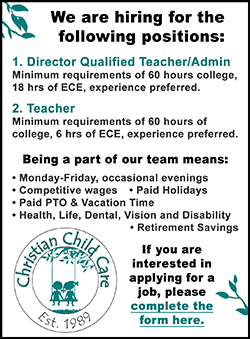Crewed flight of Boeing Starliner space capsule pushed back at least 10
more days
 Send a link to a friend
Send a link to a friend
 [May 08, 2024]
By Steve Gorman [May 08, 2024]
By Steve Gorman
(Reuters) -The Atlas V rocket carrying Boeing Co's new Starliner space
capsule will be rolled back to its hangar to replace a pressure valve,
postponing the long-awaited first crewed test flight of the spacecraft
for at least 10 more days, NASA said on Tuesday.
The new targeted launch date for the mission - pivotal to Boeing's
struggle to acquire a greater share of lucrative NASA business now
dominated by Elon Musk's SpaceX - has been set for May 17 at the
earliest, according to NASA.
The debut flight of the CST-100 Starliner with astronauts aboard was
originally scheduled for liftoff on Monday night from NASA's Kennedy
Space Center at Cape Canaveral, Florida, on a voyage to the
International Space Station (ISS).
But the launch was called off with less than two hours left in the
countdown after a pressure regulation valve malfunctioned on the
upper-stage liquid oxygen tank of the Atlas rocket as it was being
readied for blastoff.
The rocket, a separate component from the Starliner capsule, is
furnished and operated by United Launch Alliance (ULA), a
Boeing-Lockheed Martin joint venture.
Once launched, the gumdrop-shaped capsule and its two-astronaut crew are
expected remain docked to the space station for about a week before
returning to Earth in a parachute- and airbag-assisted landing in the
U.S. Desert Southwest.
Selected to ride aboard Starliner on its first crewed run, and to
operate its manual controls, were two veteran NASA astronauts with 500
hours of spaceflight between them - Barry "Butch" Wilmore, 61, and
Sunita "Suni" Williams, 58.
After Monday night's aborted launch attempt, NASA, Boeing and ULA
announced that they would seek to try again as early as Friday, May 10.

[to top of second column]
|

A United Launch Alliance Atlas V rocket stands on the pad the day
after a launch attempt of two astronauts aboard Boeing's Starliner-1
Crew Flight Test (CFT) was delayed for technical issues prior to a
mission to the International Space Station, in Cape Canaveral,
Florida, U.S. May 7, 2024. REUTERS/Steve Nesius

But in an update posted Tuesday evening, NASA said more time was
needed after ULA "decided to remove and replace" the pressure valve,
whose irregular fluctuations appeared to be beyond adjustment. That
will require the rocket to be rolled back to its vertical
integration facility on Wednesday for repairs, leak checks and other
reviews ahead of a second launch attempt, NASA said.
Those operations pushed the potential launch date back at least
another week from the earlier target, NASA said.
The crewed space launch comes two years after the Starliner
completed its first test flight to the orbital laboratory without
humans aboard. The Starliner's first uncrewed flight to the ISS in
2019 ended in failure.
Boeing has faced intense public scrutiny of all its activities after
a series of safety failures that have staggered its commercial
airplane operations, including the mid-air blowout of a jetliner
door plug in January.
The company has been eager to get its Starliner space venture off
the ground to show signs of success and redeem a program years
behind schedule, and with more than $1.5 billion in cost overruns.
While Boeing has struggled, SpaceX has become a dependable taxi to
orbit for NASA, which is backing a new generation of privately built
spacecraft to ferry astronauts to the ISS and, under the space
agency's more ambitious Artemis program, to the moon and eventually
Mars.
(Reporting by Steve Gorman in Los Angeles; Editing by Christian
Schmollinger and Gerry Doyle)
[© 2024 Thomson Reuters. All rights reserved.]This material
may not be published, broadcast, rewritten or redistributed.
Thompson Reuters is solely responsible for this content. |